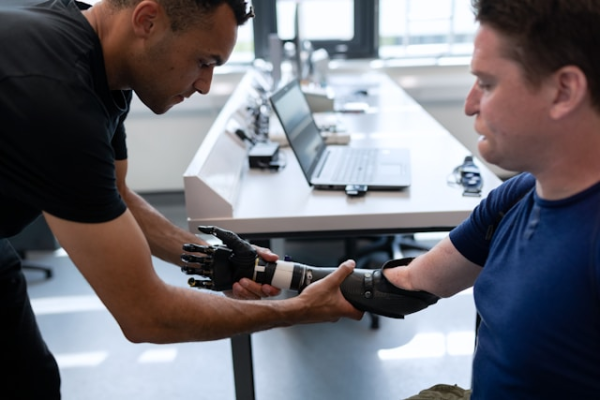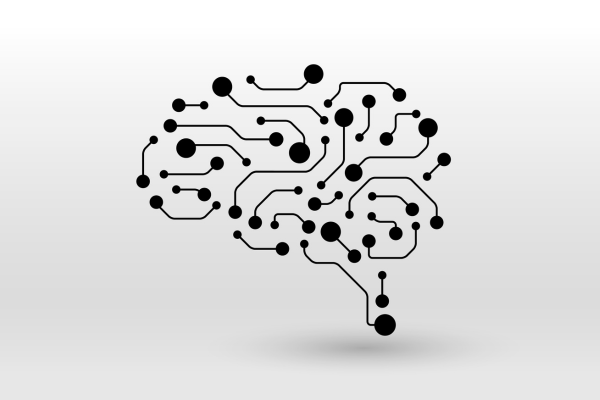The Top 3 Ways AI Could Impact Procurement in Healthcare

The UK healthcare industry is under immense pressure to deliver high-quality care while maintaining cost-effectiveness. One area ripe for optimisation is procurement, the process through which healthcare institutions purchase equipment, supplies, and services. Artificial Intelligence (AI) promises to revolutionise this crucial function by automating processes, enhancing decision-making, and improving outcomes. Below, we explore the top three ways AI could significantly impact procurement in healthcare.
What is Artificial Intelligence (AI)?
Artificial Intelligence refers to computer systems designed to mimic human intelligence and cognitive functions, such as learning, reasoning, problem-solving, and perception. While the term can be applied to any machine that mimics human traits, today's AI technologies are based on machine learning algorithms, a subset of AI that allows systems to learn from data, improve with experience, and make decisions with minimal human intervention.
In the context of non-clinical roles such as procurement, AI can analyse vast amounts of data to inform various aspects of existing processes, including vendor selection, inventory management, and predictive analytics. With machine learning algorithms, AI continually refines its insights, making each procurement cycle more efficient and effective than the last.
The Top 3 Ways AI Could Impact Procurement in Healthcare
Traditional procurement methods in healthcare, while effective to some extent, can lack the speed and accuracy needed in a rapidly evolving landscape. AI is a technology with the power to revolutionise the healthcare procurement sector through automation and optimisation. So, let’s take a look at 3 ways that AI could impact procurement in healthcare:
Streamlining Vendor Selection and Risk Management
Vendor selection and risk management are two areas of healthcare procurement that can create bottlenecks as most of the work requires manual processes and checks. Moreover, things like contract management require consistent amendments and updates, which can drastically slow things down. Here’s how AI can solve these problems:
Enhanced Vendor Profiling
Traditional procurement often involves manual, time-consuming efforts to source vendors, evaluate their credentials, and negotiate terms. AI algorithms can handle these tasks more efficiently by automatically profiling vendors based on a range of factors including cost, quality, reliability, and compliance standards.
Predictive Risk Analysis
AI systems can also predict potential risks associated with various vendors by analysing historical data and market trends. For example, a machine learning model could flag a vendor that has a history of supply chain disruptions, poor service performance, or whose financials are trending negatively. Such risk analysis can be particularly vital in healthcare, where lapses in the supply chain could lead to a shortage of essential medical supplies, affecting patient care.
Smart Contract Management
Smart contracts, powered by blockchain and AI, allow automated, transparent, and secure transaction processing. In healthcare, this means that contract terms can be automatically enforced, ensuring that both parties meet their obligations. The end result is a more streamlined, reliable, and compliant procurement process.
Data-Driven Inventory Management
Another area in healthcare procurement that could benefit from AI automation is inventory management. This type of work frequently involves manually checking inventory levels (digitally or physically) on a regular basis, which can be a laborious and time-consuming process. Bringing AI into this area of procurement could help in the following areas:
Real-time Tracking
AI-powered inventory systems can provide real-time updates on stock levels, helping to prevent both overstocking and understocking scenarios. Such capability is especially critical in healthcare, where shortages of essential items like PPE, ventilators, or medicines could have life-altering consequences.
Demand Forecasting
One of the most significant challenges in healthcare procurement is accurately predicting future demand. Machine learning algorithms can analyse historical data and seasonal trends to forecast future needs, allowing procurement teams to prepare adequately.
Dynamic Pricing
Dynamic pricing algorithms can adjust the costs of supplies in real time based on market conditions, providing a cost-effective approach to procurement. Hospitals and healthcare providers could save significant amounts of money by leveraging these automated pricing mechanisms.
Enhancing Decision-Making through Predictive Analytics
AI can be an incredibly useful tool in terms of optimising processes, but it can also improve areas like analytics. In the realm of healthcare procurement, AI can enhance the decision-making process by performing predictive analytics in several areas. By harnessing existing data, this powerful tool can help make more informed decisions for processes such as:
Resource Allocation
In healthcare, where resource constraints can mean the difference between life and death, optimal resource allocation is paramount. AI can analyse multiple variables in real time to suggest the best allocation of resources. For example, during a flu outbreak, AI could predict the need for increased ICU beds and respirators, informing procurement strategies.
Procurement Strategy Optimisation
Advanced AI models can simulate different procurement scenarios and outcomes based on a variety of factors such as budget constraints, vendor reliability, and projected needs. Healthcare organisations can use these insights to develop a procurement strategy that maximises value and minimises risk.
Cost-Benefit Analysis
With AI, procurement teams can automatically weigh the costs and benefits of purchasing decisions. For example, if a more expensive medical device reduces patient recovery time, the AI could factor this into its calculations, potentially leading to long-term cost savings.
Preparing Healthcare for an AI-Driven Future
The infusion of AI into healthcare procurement promises to bring transformative benefits, including improved vendor management, data-driven inventory control, and enhanced decision-making capabilities. As healthcare organisations increasingly adopt AI solutions, it will be crucial to invest in the right technologies and skills to leverage these advanced capabilities fully.
However, challenges such as data privacy, security, and ethical considerations cannot be overlooked. Strict guidelines must be put in place to ensure that AI is used responsibly and effectively. Despite these hurdles, there's no denying that AI is set to make a lasting impact on procurement in healthcare, ushering in a new era of efficiency and effectiveness.
If you’re looking to improve your procurement processes in terms of talent pipeline and would like to discuss achieving your team’s goals, contact our team today.

Register a Vacancy
If you’re looking to hire locum or permanent staff, we have a dedicated team of consultants available to talk through and understand your recruitment goals.





